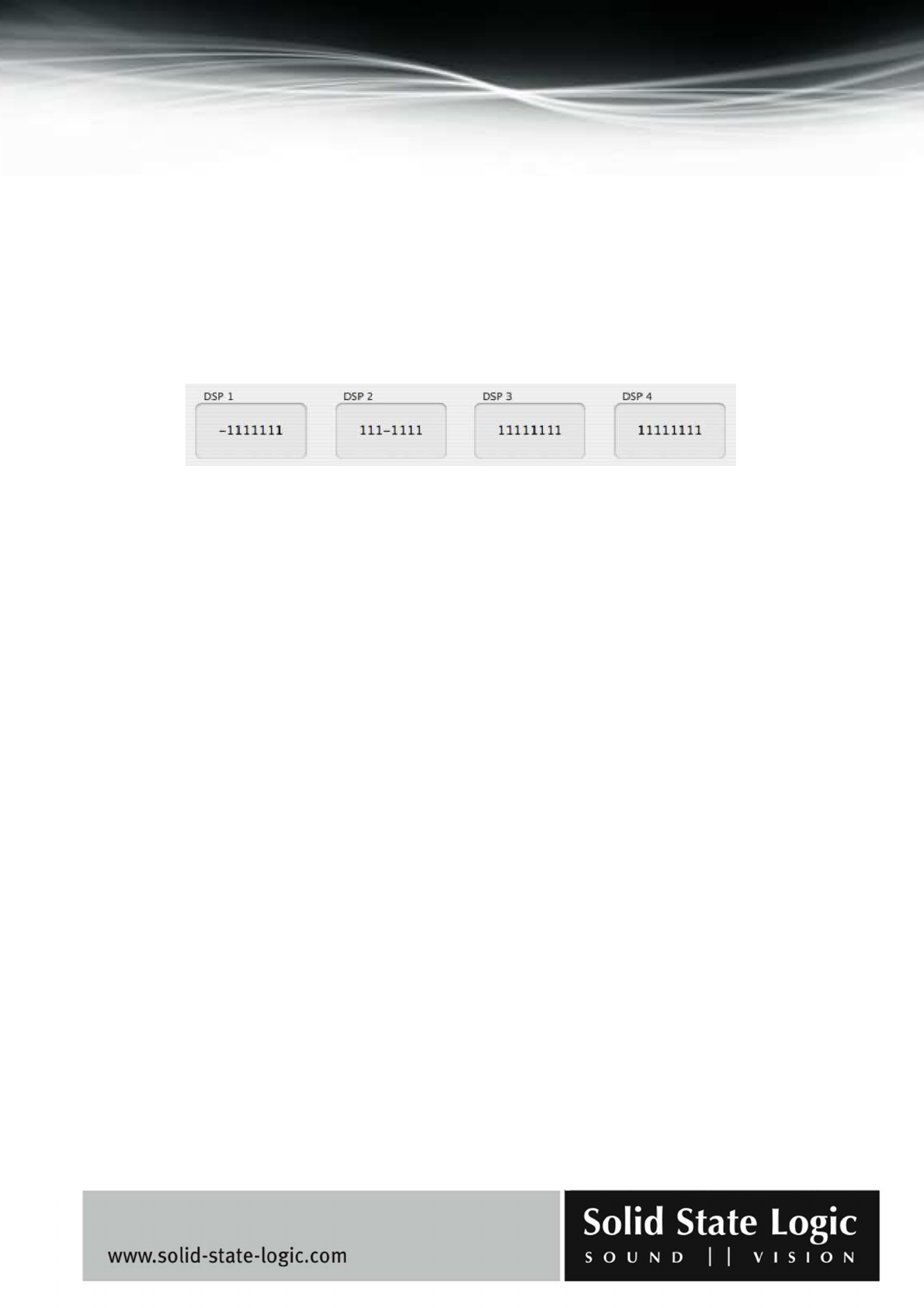
Duende User Guide
Page 12 of 29
5.3 DSP Resource Management
Due to the nature of Duende having 4 DSP chips, a minimal amount of resource management
should be done when running Duende at high load.
If there are, for example 2 slots free and you wish to load a stereo plug-in, Duende will under
certain conditions notify you that you are out of DSP resources. This will only happen if the two
slots are on different DSP chips as Duende is not able to load a stereo plug-in across 2 chips. This
may well occur because you have filled up all the resources and subsequently unloaded 2 mono
plug-ins. This situation can be seen in the diagram below:
As you can see above, the two remaining slots reside on different DSP chips and in this case when
you attempt to load a stereo plug-in you will encounter the afore mentioned situation.
The way to handle this is as follows:
1. Save your project/song
2. Close your project/song
3. Re-open project/song
When this has been done Duende will be forced to reload all the plug-ins but will do so in the most
economical way possible. The 2 free slots will now reside on the same DSP chip allowing the
loading of a stereo plug-in.
5.4 General guidelines for plug-in Delay Compensation
When Duende plug-ins are used, the audio data to be processed by Duende is sent to the Duende
DSP engine by the host application. The audio is then processed by the DSPs and sent back to the
host application.
This transfer of audio data produces latency (delay) in the audio signal being processed. Latency
time is dependant on the sample rate, type of plug-in(s) loaded and the audio interface buffer
setting.
If this latency is not compensated, the processed audio will arrive late in relation to the
unprocessed audio. The more processing that takes place on a particular signal, the later it will
arrive back in the host.


















